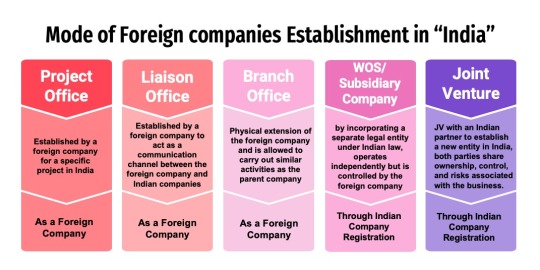#subsidiary in India
Text
#global captive center in india#operating cost management in india#bpo services in india#captive business services#captive center model#market analysis company in india#set up subsidiary unit in india#global capability center (gcc)#virtual captive unit in india#subsidiary in india#setting up bpo business in india#Formation Consultants in India#Vendor Management Services in India
0 notes
Text
Simple Steps Incorporation of Foreign Subsidiary in India at VenturEasy
Thanks to VenturEasy's knowledge, you may go on your Indian business journey with confidence. We provide end-to-end solutions for a successful introduction into the Indian market, from simple Incorporation of Foreign Subsidiary in India to overcoming compliance complexities.
More Info: https://ventureasy.com/blog/incorporation-foreign-subsidiary-india/

#Incorporation of Foreign Subsidiary in India#Foreign Subsidiary in India#Subsidiary in India#Company registration in India
1 note
·
View note
Text

Chartered accountant in India
Are you looking for a top chartered accountant in Delhi, CA in India, CPA in India, and CA Services in India? RAAAS helps with all your business needs.
Chartered accountant in India | Chartered Accountant in Delhi | CPA in India | CA in India
#cashflow#charted accountant#form 16#msme registration#private limited company registration in india#setting up a subsidiary in india#company registration in india#startup in india
1 note
·
View note
Text
Shareholding Rights of a Subsidiary in its Parent Company

Introduction
In this corporate world, a subsidiary company is known as an entity that is owned and controlled by its parent company. The parent companies own more than 50% of the stock and also control the operations of the subsidiary. However, when 100 percent of the shares of an Indian subsidiary are owned by another company, such a company is known as a wholly owned subsidiary. As per the Companies Act, 2013 a subsidiary company has no right to hold or own the shares of its holding company. In this blog, we will discuss the shareholding rights of a subsidiary company in its holding company under Section 19.
What is a subsidiary?
A subsidiary company is a company that is controlled and operated by another company, and the controlling company can be either a parent company or a holding company. It is a separate legal entity governed under the Companies Act, 2013. However, he may acquire, alienate and purchase property in his name and the existence of the company shall not be affected by the death or removal of any of the members.
What is a parent company?
A parent company is a company that owns more than half of the stock of an Indian subsidiary and can therefore control its operations. A parent company is a holding company that owns a significant number of voting shares of another company.
Shareholding Rights of a Subsidiary in its Parent Company
As per the provisions of Section 19 of the Companies Act, 2013, a subsidiary company is prohibited from holding any shares in its parent company, by itself or its nominee. In other words, the Indian subsidiary has no shareholding rights in its holding company. A provision of the Act also prohibits a holding company from allotting any shares in its Indian subsidiary.
However, there are certain cases where a subsidiary company holds shares in its parent company. The cases are as follow
●A subsidiary company holds shares in its parent company as the legal representative of a deceased member of the holding company.
●An Indian subsidiary may own shares of the parent company as a trustee.
●When an Indian subsidiary is functioning as a shareholder in its holding company prior to the establishment of that holding company.
●An Indian subsidiary has the right to vote in a meeting of the holding company only as a legal
representative or in respect of shares as a trustee, as referred to in (a) and (b).
What would be the effect if a subsidiary company could hold shares in its parent company?
●There will be overlapping interests of the members of the holding company as well as the subsidiary company.
●The holding company's control over its Indian subsidiary will be affected.
●For the parent company, the objective of solving critical issues and risk diversification will no longer exist.
●A holding company may not enjoy various tax benefits.
●Dividend distribution will be a matter of conflict between parent and subsidiary companies.
A holding company in India is an authority that exists independently and manages other companies via ownership of their shares.
Summary
A subsidiary company has no shareholding rights in its parent company as per the provisions of section 19. Such allotment or transfer of shares is prohibited under the Companies Act. However, there are certain legal conditions under which a subsidiary company can own the shares of the holding company. In case the holding company is limited by guarantee or the unlimited company has no share capital, the shares shall be converted in the interest of the members and then it shall determine that such company is a holding company of Indian subsidiary.
#indian subsidiary of foreign company#associate company#indian subsidiary#subsidiary company#holding company in india#foreign subsidiary company in india#subsidiary business in india#foreign company subsidiary in india
0 notes
Text
When a foreign company owns at least 50% of the share capital, it is dubbed an Indian Subsidiary Company. It must follow the rules of the Indian govt.
#Indian Subsidiary Company Registration#Indian Subsidiary Company Registration Online#Eazy startups#India
0 notes
Text
Setting Up Business in India by Foreign Companies | R Associates

R Associates facilitates the establishment of businesses in India for foreign companies, offering comprehensive support and guidance throughout the process. Their expert team navigates the legal and regulatory framework, assisting with company incorporation, compliance, taxation, and other essential aspects, ensuring a smooth and successful setup for international businesses.
#india a subsidiary country#india business setup#setting up a company in india#offshore company setup in india#new business setup in india#setting up business in india by foreign companies#startup legal advice india#business setup services in india
0 notes
Text
A guide to choose the right destination for global expansion
Whether providing B2B services or exporting products, setting up a business or a shared service center or setting up a remote team in a different country for international growth is not easy. But if successful, the benefits go beyond just profitability and brand popularity. International expansion is the business strategy to achieve global success. Needless to say, with numerous growth opportunities across various sectors it is tempting for any SME, startup, or business enthusiast to dive straight toward building remote teams and growing their business footprint.
Growing your business internationally offers various benefits to your company. Your remote teams at cross-border locations, function towards achieving company objectives and goals. This reduces the risk of relying on a single market for profitability. International expansion helps you tap the skilled and diverse workforce into a new competitive market. Also, strategically capturing international markets fosters collaboration with local businesses, and increases partnerships with local service providers such as Employer of Record (EOR) or Professional Employer Organizations (PEO). These service providers prove to be instrumental in simplifying your business expansion journey in the location of your business.
Steps to selecting your target location for global success
A step-by-step, strategic international business expansion process that considers the time, cost, and resource constraints can help you explore potential opportunities a new market can offer. The cultural aspects, operational capacity, market scenario, and legalities of the target countries need to be critically examined. It also helps you understand if your organization is ready to establish its teams in the new market.
Through this article, we go beyond cultural differences, GDP growth, competition level, and communication and focus on all the important factors to consider while choosing your destination. These key factors will help you determine the best-suited destination for growing your business and making your international expansion successful.
Availability of talent
When you start your search for the perfect destination for building remote teams, understand its talent pool and resources. A country may be particularly suitable due to its technology and infrastructure but may be short on skilled resources and expertise.
A strategic approach toward recruiting and hiring remote employees can help you acquire a larger and more diverse talent pool. In addition, the location of your choice should suffice the needs of your remote employees to work efficiently. For instance, half of India’s current population is under the age of 26 and can seize global job opportunities. India offers numerous employee benefits and perks, diverse company culture, and flexible work schedules.
Several policies, business initiatives, and competitive compensation packages are additional factors that make India a promising destination for expanding business and building remote teams. An in-house team of HR professionals in the country of choice can manage hiring and all other HR activities. Moreover, outsourcing human resources or bringing a professional in the house (for example PEO or EOR company) can provide guidance and a network for accessing talent in the desired location and handle all the complexities around hiring.
Calculate the costs
At the offset, it is imperative to know that managing remote teams internationally, is like managing a startup in the global market. Hence, make sure you consider the cost factor while fixing an international location for your business expansion. Apart from operating costs in a foreign country, other monetary aspects to be considered include taxation for employees as well as corporations, production costs, government incentives, and other overhead social costs that affect remote operations.
Research the legalities and estimate the monetary investments required for your business expansion. For instance, Ireland ranks number 11 on Forbes’s best countries for Business list. Ireland’s low corporate taxes, access to other European markets, and high-tech talent pools make it an interesting choice for business expansion. Prioritizing destination based on operational costs, prospective profitability and return on investment (ROI) can give a realistic image of the costs while taking your business into an international location.
The economic and political environment
Growth opportunities in the world are vast. The economic and political environment of a country can help you decipher whether your business capacity aligns with the destination of your choice. Understand the country’s GDP, CPI, and exchange rates, market size. Ideally, a country with stable economic growth is suitable for building remote teams.
The desired destination should encourage your business growth, and market reach, and should pose a little political risk. Forecasting business accessibility, market performance, and general regulatory changes can help you shortlist the most viable business destination for your remote teams.
Go through the taxes and regulations
Before selecting your location for international expansion, research its local laws and regulations. Any foreign business has to pay regional and municipal taxes. The local regulations differ based on the type of services industry and even state and country. Research employment tax laws, income tax breaks, government regulations, grants, land discounts, and other financial benefits. Many countries offer economic and trade benefits in specific locations and zones. Mexico for example, offers free trade agreements with many countries including the US.
Evaluating IP protection permits, trade regulations and laws of a destination can help you determine how business-friendly a destination is for your services. Understanding these laws can mitigate any legal risks and help you determine the bests suitable destination for your remote teams. Going through all these regulations and tax affairs can be challenging at times. In such cases, speaking to trade experts or commissioner offices from desired destinations can help you gather data and analyze your best route to international business expansion.
Logistics and infrastructure
IT-related software and AI have become an integral part of any business and help to streamline online business operations. As per the latest forecast by Gartner, Inc., the worldwide IT expenditure is expected to reach a total of 4.6 trillion dollars in 2023, showing a 5.1% rise from the year 2022. This exponential growth of technology, digital Internet connectivity, and software availability is pushing various SMEs and startups toward global expansion. Hence, when taking your business to a foreign location, considering the country’s logistical capabilities, technological development, and infrastructure becomes essential.
Does the destination of your choice have the resources to scale and enhance your business efficiently? Does it support the business vision of developing your remote teams? Is the country equipped to provide you with the high-end software and technology your business needs? Not all destinations answer these queries and offer everything your business needs.
The best solution is to find a destination offering all the resources and experience at a reasonable cost. For instance, a software company wishing to take its business overseas can prioritize Germany or Japan which have large software markets. Providing the necessary IT support and handling the back-office processes in a foreign location can be taxing. Consequently, reaching out to International PEO or EOR services to overcome these challenges becomes a strategic move.
Choose PEO or EOR services as your local expert
Expanding your business to a new destination is a milestone for any organization wishing to go global. Once you evaluate which country to target and how to manage your services, then business expansion in an international location proves to be fruitful.
However, if you are unsure of moving forward alone, then approaching external support is a good idea. An external vendor can fill the gaps and mitigate potential risks. Also, PEO or EOR services can support you through all your legal hurdles, saving you time and investment in a foreign country. Moreover, you can test the new market by building remote teams in the desired location. Testing the business culture and analyzing the market reaction can help you develop an effective international business expansion strategy before making any permanent commitment such as subsidiary formation.
Conclusion
Global expansion plays a pivotal role in creating brand awareness and enhancing your balance sheet by positively impacting the top and bottom lines. Expanding markets in new locations, helps you reach a larger consumer base by transcending geographical boundaries. At often times, going forward after choosing a destination an organization can face obstacles such as challenges of remote working, managing remote teams, providing technology and infrastructure support, and so on. In such cases, an experienced partner like EOR can streamline your business expansion journey.
Since the Employer of Record services already has a strong foothold in the destination of your choice, they can be your local business guide and take over all your non-core business responsibilities. An EOR with its network and customized solutions, will reduce your legal hurdles and significantly enhance your overall business experience. If building your subsidiary is the right step for your business, then an EOR can guide you in the process. With EOR services, you can hire internationally, manage remote teams and be compliant in the destination you choose for your global success.
You can look at our case studies to gather insights on how EOR plays an important role when you think of building remote teams and expanding your business footprint in the destination of your choice.
#foreign company incorporation in India#setting up a subsidiary company in India#foreign company registration in India#business setup services in India#setting up business in india
0 notes
Text
Subsidiary Company Registration in India | Subsidiary Company Registration
Subsidiary company registration is very popular entity registration. We help in subsidiary company registration in India
Subsidiary Company Registration in India
https://ezybizindia.in/subsidiary-company-registration/
0 notes
Text

A WOS or Wholly Owned Subsidiary in India refers to a company where the foreign parent company possesses 100% of the shares. Foreign-based corporations are eligible to establish wholly-owned subsidiaries in India, which offer numerous advantages, such as total control over operations, diversification, utilization of Indian resources, and risk reduction.
Registration Arena assists startups and growing businesses by providing services such as company or LLP registration, IPR registrations, preparing their books of accounts, auditing, company law compliances, filing of income tax returns, etc.
#private limited company registration#llp registration#opc registration#wholly owned subsidiary#trademark registration#annual compliances of llp#legal consultation#legal advisers#legal services#startup india registration#annual compliance of llp
0 notes
Text
#global captive center in india#bpo services in india#captive business services#operating cost management in india#captive center model#market analysis company in india#set up subsidiary unit in india#global capability center (gcc)#virtual captive unit in india#subsidiary in india#Operating Cost Management in India#Global Captive Center in India
0 notes
Text

Digital India and its UPI payment linkage with Singapore
#PEO#employer of record services in india#professional employer organization#peo vs eor#peo companies#Professional Employment Organization#foreign company incorporation in india#employer of record india#setting up a subsidiary company in india#foreign company registration in india#peo providers#business setup services in india#list of peo companies#employer of record
0 notes
Text
Why Choose Raaas for CPA in India
Introduction:
In the complex and dynamic world of finance, having a reliable Certified Public Accountant (CPA) can make all the difference. If you're searching for top-tier CPA services in India, look no further than Raaas. With a commitment to excellence and a comprehensive suite of accounting and financial services, Raaas stands out as a leading CPA service provider in India. In this blog, we'll explore the myriad benefits of choosing Raaas for your CPA needs and how we can help you achieve financial success.
What is a CPA and Why Do You Need One?
A Certified Public Accountant (CPA) is a highly qualified financial professional who has met rigorous education, experience, and examination requirements. CPAs provide a wide range of services, including auditing, tax planning, financial consulting, and compliance management. For businesses and individuals alike, a CPA is an invaluable asset in navigating the complexities of financial management and ensuring regulatory compliance.
Why Choose Raaas for CPA in India?
Expertise and Experience
At Raaas, we pride ourselves on our team of seasoned CPAs who bring extensive experience and deep knowledge of the Indian financial landscape. Our professionals are well-versed in local and international accounting standards, tax laws, and regulatory requirements, ensuring that your financial affairs are in expert hands.
Comprehensive Financial Services
Raaas offers a full spectrum of CPA services designed to meet diverse financial needs. Our services include:
Auditing and Assurance: Thorough and reliable auditing services to ensure the accuracy and integrity of your financial statements.
Tax Planning and Compliance: Strategic tax planning and compliance services to optimize your tax liabilities and ensure adherence to tax regulations.
Financial Consulting: Expert financial advice to help you make informed decisions and achieve your financial goals.
Bookkeeping and Accounting: Accurate and efficient bookkeeping and accounting services to keep your financial records up-to-date.
Payroll Management: Comprehensive payroll management solutions to ensure timely and accurate employee payments.
Customized Solutions
We understand that every client has unique financial needs. That's why Raaas offers personalized CPA services tailored to your specific requirements. Whether you're a small business owner, a multinational corporation, or an individual seeking financial advice, our customized solutions are designed to meet your unique needs and objectives.
Advanced Technology
Raaas leverages the latest accounting software and technology to provide efficient and accurate services. Our use of advanced tools ensures that your financial data is secure, accessible, and managed with the highest level of precision.
Client-Centric Approach
At Raaas, our clients are at the heart of everything we do. We are committed to building long-term relationships based on trust, transparency, and exceptional service. Our client-centric approach ensures that we understand your financial goals and work diligently to help you achieve them.
Compliance and Integrity
Staying compliant with ever-changing regulations is crucial for any business. Raaas ensures that your financial practices adhere to all relevant laws and regulations. Our commitment to integrity and ethical practices guarantees that your financial matters are handled with the utmost professionalism.
How Raaas Can Help You Succeed
Strategic Financial Planning
Raaas provides strategic financial planning services to help you achieve your long-term financial goals. Our expert CPAs analyze your financial situation, identify opportunities for growth, and develop strategies to enhance your financial health.
#cashflow#charted accountant#form 16#msme registration#private limited company registration in india#setting up a subsidiary in india#company registration in india#startup in india
1 note
·
View note
Text
Why is forming an Indian subsidiary not as tough as you think?

Introduction
India is a country that attracts a lot of private equity and foreign direct investment (FDI) due to its rapid expansion. India has the second-largest population in the world and a wealth of skilled IT workers, which makes it an appealing destination for investment from foreign businesses and individuals. This article will explain why establishing an Indian subsidiary is not as tough as you may believe. In this article, we will also include information on What is an Indian Subsidiary? It is discussed how important it is to have an Indian subsidiary and what paperwork needs to be done to get one.
What do you mean by Indian Subsidiary Company?
An Indian subsidiary is a business whose interests are controlled or owned by another organization. The connection between the holding company and subsidiary company can be determined by looking at the preference share capital and paid-up equity share capital of the subsidiary company. It could be wholly or partially owned by another firm. It is essential to remember that the business that owns the subsidiary is referred to as the “parent company” or “holding company.” On the other hand, a holding company and a parent company differ slightly.
What is the importance of establishing an Indian Subsidiary Company?
The following are the importance of forming an Indian Subsidiary:
Since they are considered independent entities, Indian subsidiary businesses are allowed to buy real estate in India.
India’s population is young and productive, which makes it easy to develop a sizable clientele.
The main advantage of an Indian subsidiary of a foreign firm is the limited liability of the shareholders toward the company.
A subsidiary company in India may be either a private or public corporation, depending on the applicant’s needs.
What are the requirements for eligibility to establish an Indian Department?
A private company needs two directors at the very least.
One of the company’s directors shall be an Indian citizen (the director who has resided in India for at least 182 days in the preceding calendar year).
A minimum of two shareholders are required for a Private Limited Company.
The directors who were nominated should possess a valid certificate for digital signatures.
Foreign investors must own the majority of the company’s shares in order to keep control and management in their hands.
The company’s headquarters need to be in India. It is necessary to follow multiple RBI and FEMA laws while making a corporate share subscription.
What is the necessary paperwork to open an Indian subsidiary?
A picture of every director and shareholder
Every Indian shareholder and director has a PAN card.
An electricity bill or other utility bill serves as proof of the registered office’s address and the directors’ all-important apostille ID.
The specific documents needed to establish an Indian subsidiary are listed below:
An organization needs to have an Indian registered office.
The utility bill must be provided to the ROC as proof of address.
The electricity bill or bank statement must be more than two months old.
A NOC from the landlord is required in order to use the space as a registered office for a business.
What are the benefits of Subsidiary Company Registration?
The following are the benefits of Subsidiary Company Registration:
1. Duration of Existence
A private limited company’s ability to continue operating even after a shareholder passes away generally remains unaffected by the status of its investors.
2. Brand Value Growth
An organization’s strong corporate structure, customers’ trust and confidence in a brand when buying its goods or services, employees’ confidence in joining a private limited company, vendors’ confidence in granting credit, investors’ confidence in making investments, and the company’s rising brand value. Due to their great brand recognition, many new businesses that start with no revenue soon reach billion-dollar valuations in a matter of years.
3. Foreign Direct Investment (FDI)
FDI is entirely allowed in a number of commercial ventures and industries without the need for prior approval. However, FDI is not allowed in sole proprietorships or partnerships, and LLPs need prior government approval.
4. Range of Growth
The Private Limited Company offers greater transparency in the business and is more easily accessed by angel investors, financial institutions, venture capitalists, and limited liability investors.
5. Limited Liability
The directors and members of a Private Limited Company are only liable for the value of their shares. This means that the personal assets of the owners, individuals, or directors will not be in danger of being seized by banks, creditors, or the government, even in the event that the company suffers a loss or financial difficulties as a result of its major commercial activity.
“Foreign company subsidiary in India” is a comprehensive guide that provides insights into the advantages, prerequisites, and regulatory compliances associated with establishing a subsidiary company in India by a foreign parent company. It offers valuable information on how to register, operate, and expand your business in the burgeoning Indian market. This guide is an essential resource for foreign companies looking to tap into the vast potential of the Indian economy.
Final Thoughts
India is a popular destination for foreign investment due to its growing opportunities. Foreign investment in India is rising as a result in all areas. Ever since Economic Liberalization occurred in 1991, the increase in foreign direct investment into India has resulted in a boom in the Indian economy.
When the Foreign Exchange Management Act (FEMA) was implemented in 1999, the government repealed the Foreign Exchange Regulation Act. It became easier to invest in India with the support of FEMA. The Reserve Bank of India (RBI) provides regulations regarding the establishment and registration of Indian Subsidiary Companies.
0 notes
Text

Remote working is the way to function post-pandemic. But how did it begin in the first place?
Working with remote teams is not a new concept. It has evolved over the years through various business models. It is a tried and tested working model which has proved to be helpful for companies planning to expand their operations in foreign countries.
0 notes
Text
When a foreign company owns at least 50% of the share capital, it is dubbed an Indian Subsidiary Company. It must follow the rules of the Indian govt.
#Indian Subsidiary Company Registration#Income Tax Registration#LLP Registration Online#GST Registration Cancellation#Business Registration Online#Eazy startups#India
0 notes
Text
Subsidiary Company Registration in India | Subsidiary Company Registration
Subsidiary company registration is very popular entity registration. We help in subsidiary company registration in India
Subsidiary Company Registration in India
https://ezybizindia.in/subsidiary-company-registration/
0 notes